
David Cope
Algorithms have taken over our everyday. They are used virtually everywhere, from financial institutions to Google Search, Facebook News Feed, Date Matching, and myriads of online services like Amazon and Netflix. Basically, computer scientists describe algorithms “as a set of rules that define a sequence of operations. They are a series of instructions that tell a computer how it is supposed to solve a problem or achieve a certain goal.” Believe it or not, but most music also adheres to a set of implicit and explicit algorithms with regard to form, rhythm, phrase structure, and phrase length. This seems counterintuitive at first, as we frequently consider music the clearest expression of human emotions communicated in a language of feeling. We often consider the act of composition as a consequence of inspiration, originality and creativity, and a machine is perfectly incapable of such soul-searching emotions, or isn’t it?
David Cope: Computer Composed Music, “Fugue after Bach” (David Cope, computer)
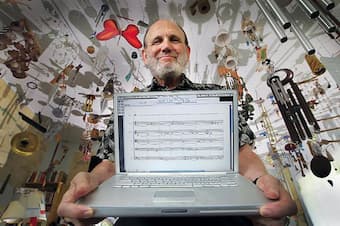
David Cope’s Recombinant music composition algorithm
David Cope, Dickerson Emeritus Professor at the University of California at Santa Cruz began his career as a musician and composer. His works were performed around the world, and critics considered him “unquestionably one of this generation’s most ambitious, prolific and multifarious composers.” But when he was faced with an opera commission, inspiration seemingly left him. “I couldn’t figure out what my style was,” explained the composer, “so I suddenly started to say ‘well, I don’t know what my style is, so I should figure out what style is, period.” As such, he began to work on a music composition program, which eventually became known as “Experiments in Music Intelligence,” aka EMI or Emmy. That program would analyze music entered into the database, and that input would be used to generate composition of new works in the same style.
David Cope: Computer Composed Music, “Mazurka after Chopin” (Mary Jane Cope, piano)
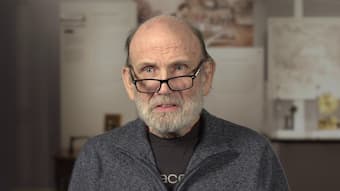
David Cope and his “Experiments in Music Intelligence”
Initially, Cope used AI to produce music in his personal musical style. The program became a kind of collaborator in his compositional process, and the composer began to notice patterns in his own work that he had never caught before. This in turn, began to change his style of composing. “I looked for signatures of the Cope style, and with the help of EMI I completed the opera.” Cope then set up EMI to compose new works in the style of various legendary composers. Once a significant portion of a composer’s music was entered into the system, AI would create new works using their style. “When I first started working with Bach and other composers I did it for only one reason—to refine and help me understand what style was. No other reason.” As the composer explains, “Producing an album was the easy part; getting it released was the hard part. I spent almost a year trying to get an actual record company to produce the music. It was really tough.” On the very same day, he got two negative replies. The first said, “we only publish contemporary music, and this, by our definitions, is not contemporary music, and then the other one said ‘we only do classical music, and this is not classical music’, so I said ‘then, what is it?’”
David Cope: Computer Composed Music, “Sonata after Mozart” (David Cope, computer)
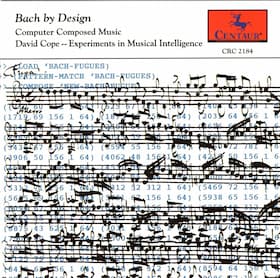
Bach by Design
Cope produced several albums using EMI, including Virtual Mozart and Virtual Rachmaninoff. He has produced thousands of works in various styles using EMI, including 5,000 Bach chorales. These pieces composed by Emmy challenge many notions, including the question of how computers can be used within the arts as a whole. Essentially, “it changed the course of musical history.” Cope had long held the belief that all music was essentially inspired plagiarism. “The great composers absorbed the music that had gone before them and their brains recombined melodies and phrases in distinctive, sometimes traceable, ways. We all have an internal database of musical reference; composers were those with the ability to manipulate it in new patterns.”
David Cope: Computer Composed Music “Intermezzo after Brahms” (David Cope, computer)
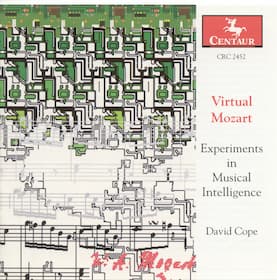
Virtual Mozart
Cope’s experiments with AI all carry the recognizable DNA of the original style and fashion but they are entirely new. For a good many musicians and composer EMI was a step too far because it removed the human element from a work. Cope recognized that “when you had the database figures out it was really a one-stroke deal; you pushed the button and out come hundreds and thousands of sonatas.” As such, Cope unplugged Emmy after limiting the output to 11,000 chosen pieces. He did end up writing follow-up programs such as “Alena” and “Emily Howell,” whose memory involves an intimate understanding of the works of 36 composers, “starting with Palestrina and ending with David Cope.” When Cope was asked whether he believed computers were creative, he answered without hesitation, “Oh, there’s no question about it. Yes, yes, a million times yes. Creativity is simple; consciousness, intelligence, those are hard.”
David Cope: Computer Composer Music “Prelude after Gershwin” (David Cope, computer)

Jae Shim
In a major update to my above blog, David Cope has now become the primary subject of a documentary film. Directed by Los Angeles-based filmmaker and director Jae Shim, “Opus Cope: An Algorithmic Opera” celebrates the groundbreaking work of composer David Cope and the profound ways in which humans and machines (AI) can be creative. Jae’s approach blurs the line between documentary and fiction, “imploring the viewer to go beyond mere observation to arrive at a greater reality.” The film was five years in the making, and it is scheduled for a nationwide PBS release in the US and a screening at Laemmle theaters in LA in 2023.
For more of the best in classical music, sign up to our E-Newsletter
“Opus Cope: An Algorithmic Opera” (Trailer)


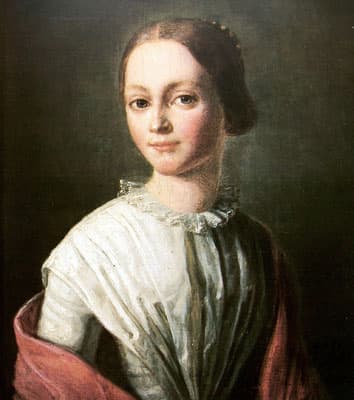
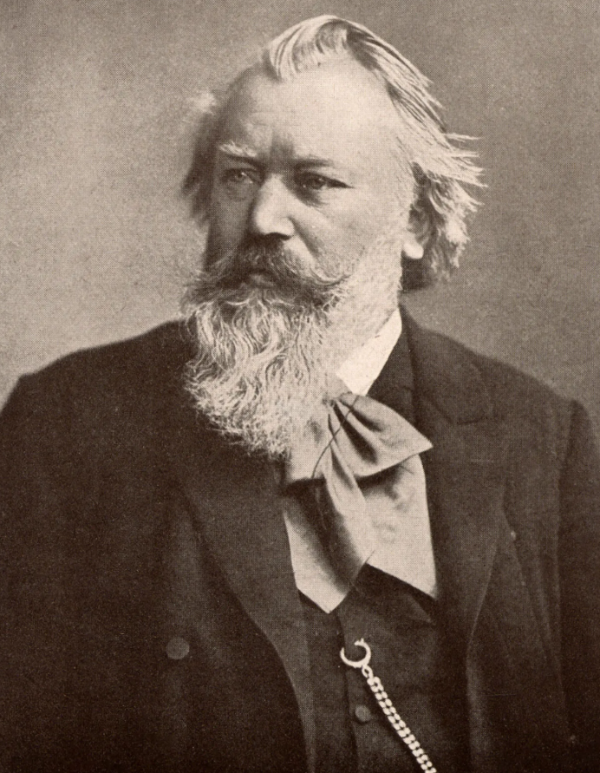
Creativity for the future is extremely important in every genre from music composition to medicine, agriculture to the environment, education and global country collaboration. AI is necessary to keep ahead of the rapidly wave of the future.